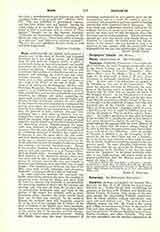

Nazarene (Greek: Nazarenos, Nazarenus).— As a name applied to Christ, the word Nazarene occurs only once in the Douai Version, viz. in Matt., ii, 23, where the Vulgate reading is Nazaroeus (Greek: Nazoraios). Elsewhere (Matt., xxvi, 71; Mark, i, 24; x, 47; xiv, 67; Luke, iv, 34; John, xviii, 5; Acts, ii, 22 etc.) Jesus Nazarenus is uniformly translated “Jesus of Nazareth“. In Acts, xxiv, 5 the Christians are spoken of by Tertullus as “the sect of the Nazarenes”. The name has obvious reference to Nazareth, the early home of the Savior, and it is applied to Him in the Gospels only by those who are outside the circle of His intimate friends. In the Acts, however, it is employed by St. Peter and St. Paul, and by the risen Lord Himself, according to Paul’s account of his conversion given to the multitude of angry Jews who had attacked him in the Temple (Acts, xxii, 8). In Matt., ii, 23 we read that “coming he dwelt in a city called Nazareth: that it might be fulfilled which was said by the prophets: That he shall be called a Nazarene”. No explicit prediction to this effect is found in the recorded O. T. prophecies, and various theories have been advanced to explain the reference. Some would connect the passage with the netzer (flower) of Is., xi, 1; others with the netzure (dregs, Douai) of Is., xlix, 6, but these interpretations seem far-fetched, to say nothing of other difficulties. That the quality of Nazarite is alluded to by the Evangelist is disproved by the fact that Christ was not a Nazarite, nor is the theory that reference is here made to some lost or merely traditional prophecy supported by any positive proof. No more plausible explanation has been found than the one given by St. Jerome in his “Commentary on St. Matthew”, viz. that the mention of the “prophets” in the plural precludes reference to any single passage, and points rather to the general predictions that the Messias would be despised (cf. John, i, 46).
JAMES F. DRISCOLL

